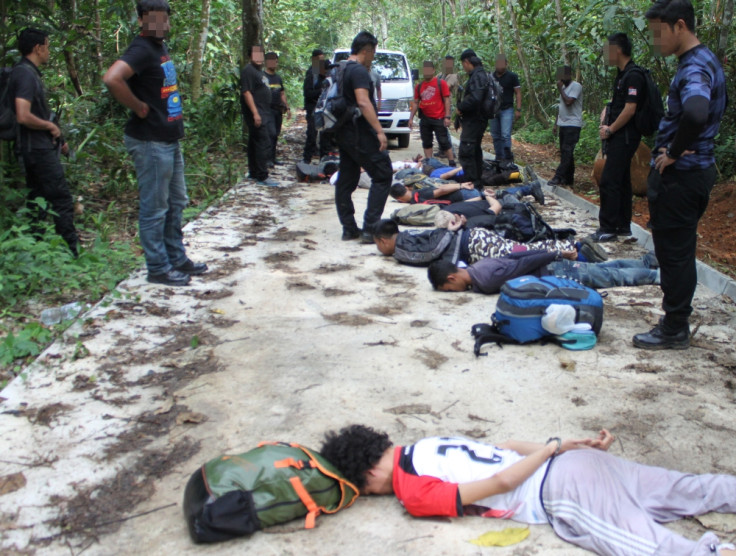Malaysia: Suspected terrorists armed with grenades at large, warn police
At least 8 grenades are in hands of terror suspects who may be plotting more attacks.

Malaysian police have warned that suspected terrorists are believed to be armed with grenades and are possibly plotting more attacks across the country.
Ayob Khan, Malaysia's head of police counter-terrorism, said that the country's first Isis attack in the country at the Movida nightclub in the outskirts of the capital Kuala Lumpur in June 2016, has changed the police's view of the level of threat posed by Islamic State (Isis).
"Before this, our assessment was that they don't have the expertise to assemble IED [improvised explosive devices] because they were never trained," Ayob told Channel NewsAsia .
"But with the Movida bombing, it's clear they have the connection and ability to get weapons from neighbouring countries and that is our main concern now."
He said police believe at least eight grenades are still in the hands of terror suspects, who are possibly plotting more attacks on government offices, entertainment outlets, the army and police headquarters.
"Based on intelligence reports, we believe they had 10 grenades. One was used in the Movida attack, one we managed to recover in Johor. We have eight more still in the market."
Ayob added: "These grenades are very old - [they're the] 1967 model - but still lethal." Malaysian IS members based in Syria have been able to "remotely control" their followers and had successfully launched the first attack in xxx in July, using one of the grenades.
Ayob said the authorities believe the Movida attack was carried out on the instructions of Malaysian Mohd Wanndy Mohd Jedi, a 27-year-old IS member in Syria. Ayob described Mohd Wanndy as a school dropout who came from a broken family.
Multiple Isis cells believed to be operating in Malaysia
Mohd Wanndy left for Syria in 2013 and is believed to have started multiple cells across Malaysia. "He will have one cell comprising 10 people in Cell A and maybe in Cell B there'll be 20. There is no connection between the two."
Ayob told the TV station: "If we arrest all in Cell A, they will not know about the existence of Cell B. He is using a new 'cut-out' technique - it's almost impossible for you to identify them because they are all operating in different cells."
The jihadist is also believed to be recruiting and collecting funds from the Malaysian public. "He is using his followers in Malaysia to collect funds. It's not much .... but with that money, they have managed to buy firearms like grenades," Ayob said.
There are also concerns that there are other Malaysians in Syria who have ordered their sympathisers back home to carry out lone attacks in the country. So far, police have detained a 17-year-old from Sandakan in Sabah, east Malaysia. He received instructions to get a knife and kill a non-Muslim in Sandakan, Ayob revealed.
Police have also arrested a 16-year-old boy in Sungai Petani who was planning to kill a non-Muslim lady and another 17-year-old boy planning to carry out a bomb attack. Since 2013, Malaysian police have arrested nearly 240 terror suspects and the figure is rising by the year.
Isis 'no longer about religion'
Ayob said that jihadists returning home have to be detained and undergo rehabilitation as Malaysia does not have the resources and manpower to monitor every one of them all the time. "In terms of ideology, they are very strong and committed. They lack expertise, but when they have the expertise, we will have a bigger problem."
He continued: "It's no longer about the religion. If you're not with them, they will kill you." Ayob warned that it was no longer a question of whether IS will attack but it is a matter of when.
© Copyright IBTimes 2025. All rights reserved.




















